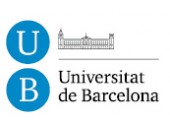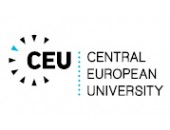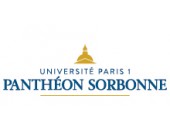Synthetic Report on Cultural Memory
Jasper Chalcraft & Gerard Delanty
Most of us working on cultural heritage encounter a sense of déjà vu when questions of heritage and identity emerge yet again in the title of a project, research agenda, book, or television series. This is also the case with the premise underlying the Cultural Base project, but this déjà vu reflects the underlying importance and validity of these issues, rather than the failure of previous efforts to understand them. For example, over 20 years ago, back in 1994, Ashworth and Larkham (2013 [1994]) noted how national identities still remained bound to shared understandings of the national past, something that was re-emergent following the end of the Cold War. For the contributors to their edited volume, there was broad agreement that,
“Europe at the end of the twentieth century is faced with a choice of repeating the example of the nineteenth century as a fragmented and warring set of nations and regions powered by religious heritages, or of moving into the twenty-first century with a new identity based upon a common and distinctive European heritage.”
(Ashworth and Larkham 2013, 3)
Back then too the emphasis on ‘dissonant’ heritage was already part of the academic critique of heritage, and the dangers of Europe ignoring its own complicated pasts (as Chalcraft and Delanty’s paper presented at the first CB Workshop highlighted) were also explicitly mentioned:
“Europe’s long history of war, pogrom and persecution between nations, classes, races and religions has left its own legacies, which markedly contradict any theme of harmonious unity.”
(Ashworth and Larkham 2013, 4)
Today, we can perhaps be more explicit about the broad shift that is needed to work towards something like ‘harmonious unity’, towards building/instilling (or perhaps, at the least, just expressing) a shared European identity. The dangers of ignoring cultural memory’s misuse as a political and symbolic resource were made painfully evident, yet again, in the Balkan wars of the 1990s. They remain so even more today, with the spectres of intolerance and narrow-minded nationalisms re-materialising as a reaction to the migration crisis and recent acts of mass violence.
A series of broad questions about the role of heritage in society, and of its role in identity creation, underlies all of the papers that were presented at the first Cultural Base Workshop, held in Barcelona between the 30th of September and 02nd of October, and whose main points are summarised here. But this project is also directed at creating tangible directions for the future, and we require a theoretical toolkit to help facilitate this. In the face of today’s difficult and belligerent contexts, where assertions of identity have become increasingly reactive, segmentary and divisive, opportunities for building shared political communities and an inclusive civil society are fragile. For reasons of pragmatism, we advocate a flexible approach that combines multidirectionality, hybridity and entanglement. Memories are multidirectional, they frame one another, and that multidirectionality demonstrates how entangled pasts are. Focusing on the entangled nature of heritage draws us to consider relationships, transfers and interactions, and this helps us recognise and study the degree to which hybridity becomes a part of identity-making in contemporary Europe. Hybrid cultures and identities are less dependent on cultural anchors, and thus one of the aims of a transnational approach to heritage is to identify hidden forms of hybridity, and in so doing to shift the moorings of cultural discourse in more critical, reflective and cosmopolitan directions.
This is perhaps more complicated than it sounds, and the theoretical toolkit can broadly be summarised in Rosi Braidotti’s idea of ‘becoming minoritarian’. What those who still hold the EU’s founding ethos-slogan of ‘unity in diversity’ are hoping for is a realistic cosmopolitan option, an ideological framework fit for a continent. Our toolkit is but one way of thinking through these issues, and we do not pretend that these tools will not need sharpening, even in the immediate future. We also risk, of course, the critiques thrown at any universalistic perspective: Eurocentrism, blindness to the political projects of non-Western societies, etc. But non-intervention is not without its own consequences, and so we believe that investigating the topics proposed below is better than just hoping that cultural memory will organically organise itself in ways that favour social cohesion.
The consortium’s work on the cultural memory axis leading up to and including the first Workshop is encapsulated in the four papers presented at the Workshop (some short versions available on www.culturalbase.eu or direct from the authors), and this paper then draws also from the debates and discussions that followed each session.
It is worth reiterating a deliberate strategy of the project design, which was for the main academic partners to produce papers that brought forth arguments and provoked discussion; we aimed at writing papers that were deliberately polemical rather than normative or consensus-seeking. This seems to have worked as stakeholders did seem to engage and question the ideas and examples of these papers. Unfortunately, and despite our best intentions, most academic partners (ourselves included) produced papers that were too long for stakeholders to read in their entirety. However, we all also produced shorter (c.3000 word) versions for precisely this reason. So everyone had the option of reading a long and or a short version. Informal conversations with Workshop participants made it nonetheless evident that few stakeholders had managed to read through all of the papers, and thus the debates that emerged sometimes worked through arguments and examples that were already discussed in the papers themselves. Realistically though, there are few easy ways to overcome the need for deep analysis, and we hope to fully explore the depth of these issues through future outputs and a deeper engagement with Stakeholders planned prior to and during the May 2016 Major Stakeholder Conference.
This Synthetic Report begins by identifying the key aspects of cultural memory with regard to the work already undertaken (the four papers). It then runs through the four proposed topics, as well as identifying a further four. We hope that where there are areas of mutual relevance and relevance between the ‘cultural memory’ topics and those of the other axes, we will be able to work on them together. Such an approach will add further critical depth and complexity to the topics, the valency of each extending well beyond each topic’s individual title.
Memory and heritage
Can Heritage be Transnationalised? The Implications of Transnationalism for Memory and Heritage in Europe and Beyond Jasper Chalcraft and Gerard Delanty, University of Sussex, UK This paper asks what happens...
Read moreMemory and identities
Is the invention of memories necessary to identities? Dominique Poulot, Université de Paris 1 Panthéon-Sorbonne The configurations of identity through memory and heritage left the greatest mark on the...
Read more









